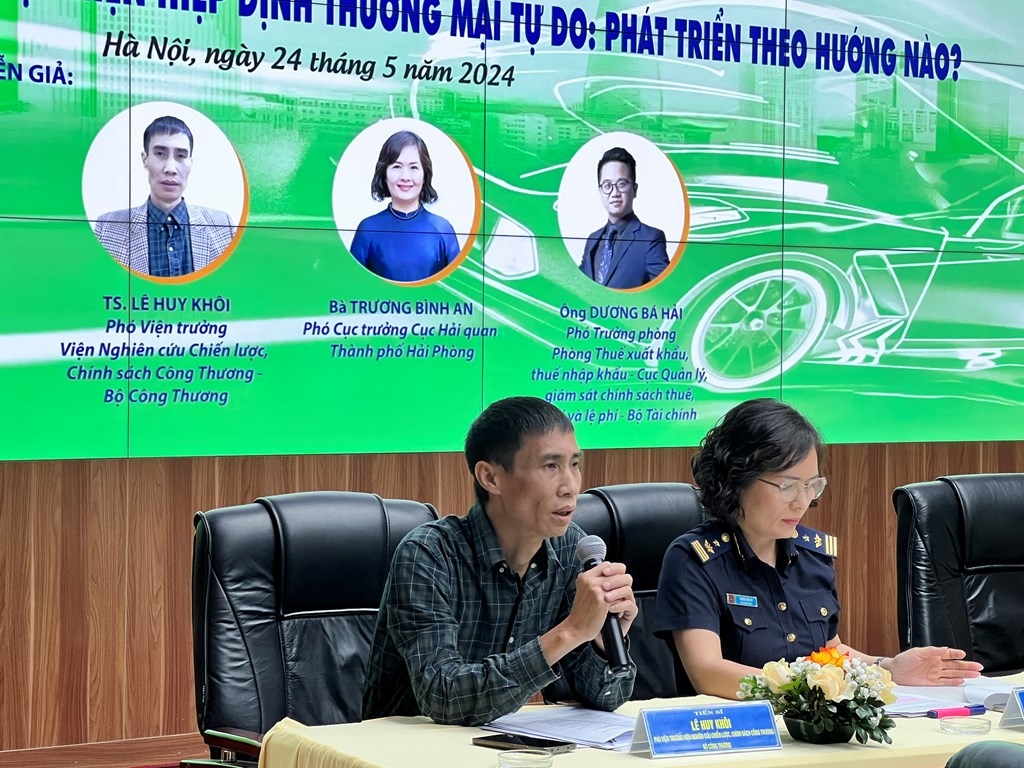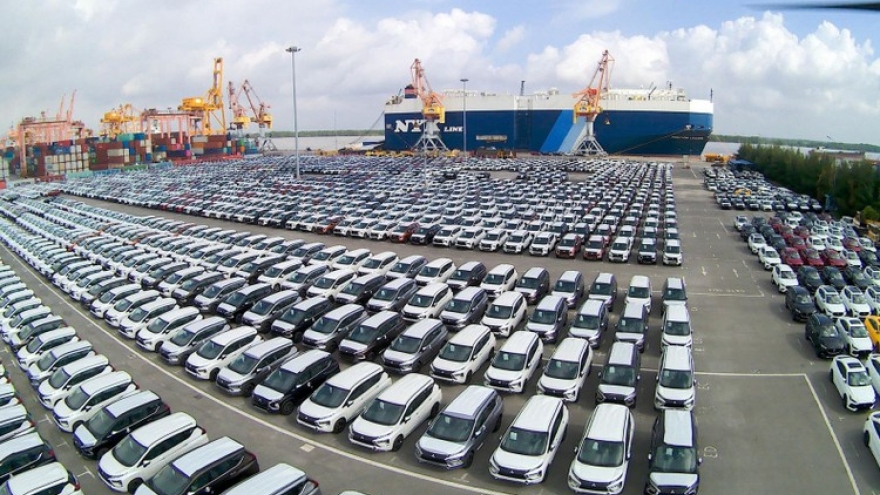Automobile enterprises advised to maximise opportunities from FTAs
VOV.VN - Local automobile enterprises must gain further insights into the EU-Vietnam Free Trade Agreement (EVFTA)’s commitments and other FTAs, and utilize opportunities from trade pacts, heard a workshop held in Hanoi on May 24.

Addressing the event, Nguyen Anh Tuyet, a representative from the Vietnam Automobile Manufacturers Association (VAMA), revealed Vietnam has signed 17 FTAs, with many having commitments of a roadmap set out to reduce import tax on Completely Built-Up (CBU) cars to 0%.
These typical FTAs include the ASEAN Trade in Goods Agreement (ATIGA), the Vietnam and the UK and EU (UKFTA), and the Comprehensive and Progressive Agreement for Trans-Pacific Partnership (CPTPP), that offer zero tariff reductions at different time frames, starting from 2018.
"This is a huge opportunity for the automobile market to diversify products and bring more options for Vietnamese consumers,” Tuyet said.
However, after abolishing import and export taxes from ASEAN member countries, many domestically-made products will be unable to compete with imported items from ASEAN such as Thailand and Indonesia, she added.
With regard to the EU-Vietnam Free Trade Agreement (FTAs), the import tax placed on CBUs from the EU will decrease by about 6.4% per year for 10 consecutive years. Currently, the import tax rate is 38.1%, and the 0% rate will be applied by 2030.
Insiders pointed out that these commitments have exerted an increasing pressure on Vietnamese automobile enterprises as they seek to maintain production and market shares in their existing segments.
Meanwhile, Le Huy Khoi, deputy director of the Institute for Industry and Trade Strategy and Policy Research, revealed that tax commitments set out under the EVFTA will have a strong impact on the Vietnamese automobile industry. In his view, there are huge opportunities for the auto industry with regard to the import of high-tech auto products, spare parts, and components from the EU at lower prices, thereby cutting production costs and increasing products’ competitiveness.
However, Khoi also pointed out a number of challenges faced by the auto industry, including high standards set by the EU and the geographical distance between the EU and Vietnam.
Local firms therefore need to carefully study EVFTA commitments and strive to maximise benefits from the trade pact, as well as making thorough preparations for tough competition when the tax reduction roadmap ends, advised the expert.
Industry insiders recommended that the policies be studied carefully to accelerate the future development of the automobile industry, and to ensure compliance with current transport infrastructure development as well as international practices.


